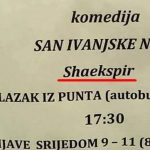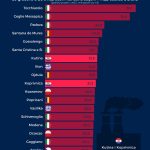It’s been a while…
I haven’t done one of these in a while, partly because these wonderful and unarguably original translations are becoming a little more difficult to find, and partly because the editor and translator in me has a very hard time getting through one article without having a Grammar Nazi mini-breakdown.
Regardless of that, English is a language very many struggle with, and having spent many years in the green, rainy, overcast and horribly expensive land itself, and as a translator who spends the vast majority of her time going between Croatian and English all day long, I know of many a native of both countries who can barely string a sentence together correctly.
Grammar in all languages is usually a whole other ball game, and it seems that no matter how many times you try to explain the whole your, you’re, there, their and they’re thing, even some of those born on English soil don’t quite get it. Just like many a Croat can’t quite understand when it’s meant to be ć and not č.
Let this preface highlight the fact that this is by no means a cheap laugh at those trying to exercise their English language skills, I know how difficult it is to speak, with all of its dialects, let alone write correctly. That being said, a wise man once said that laughter is the best medicine for everything, and if you’d like to read the other four articles of Lost in Translation in Croatia, feel free to click here, here, here, and here.
Without further ado, and thanks to the Facebook pages Moje znanje, centar za poslovni engleski jezik, t(i)jedan polu pismenosti, and their various contributors, let’s get started.
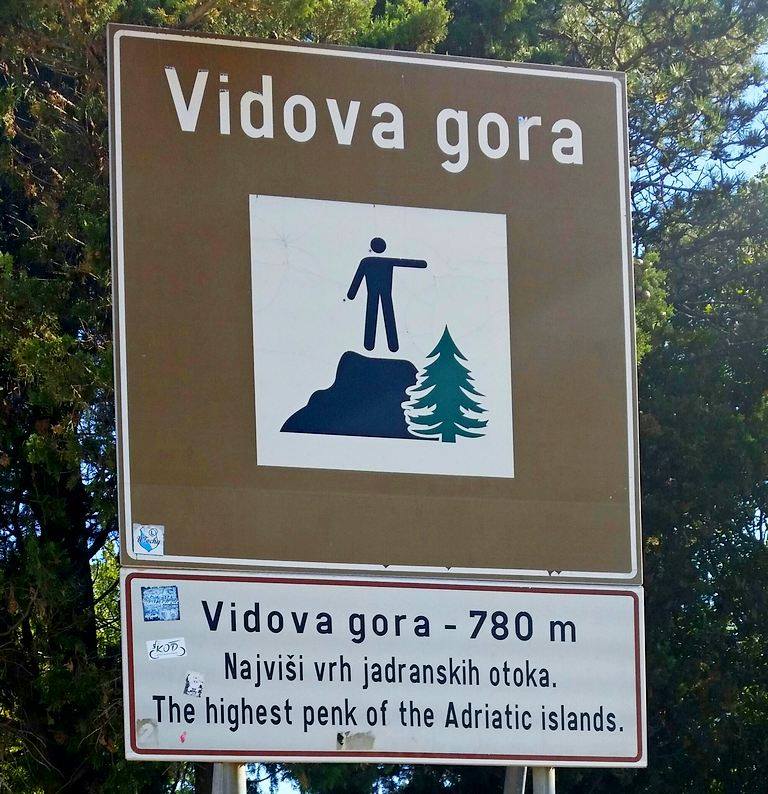
Penk. Now, I don’t claim to know what one of those is, but according to Urban Dictionary, a penk is apparently ”the act in which a pen ruptures or ink is leaked and gets all over one’s hands or clothing”. This would be quite confusing for someone who doesn’t speak Croatian, so thankfully there’s a stunning picture of a man performing quite the questionable political salute on the sign to help a bit. Vrh, in Croatian, is top, or peak. But, penk does sound a little more exotic, I guess.
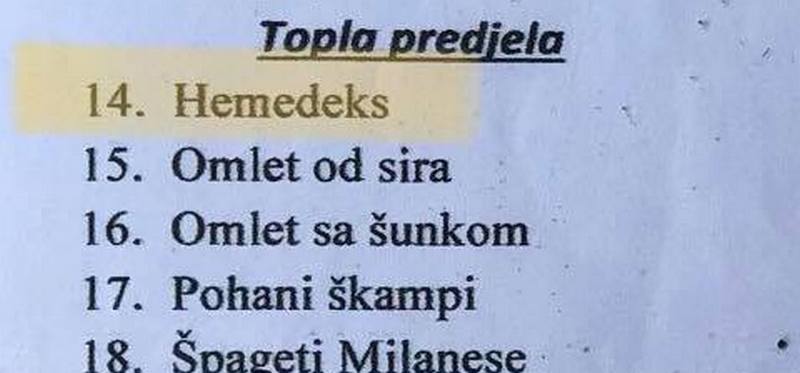
Hemedeks! This is ham and eggs, well, I can only assume it’s that. It’s not for the vegans among you, anyway.
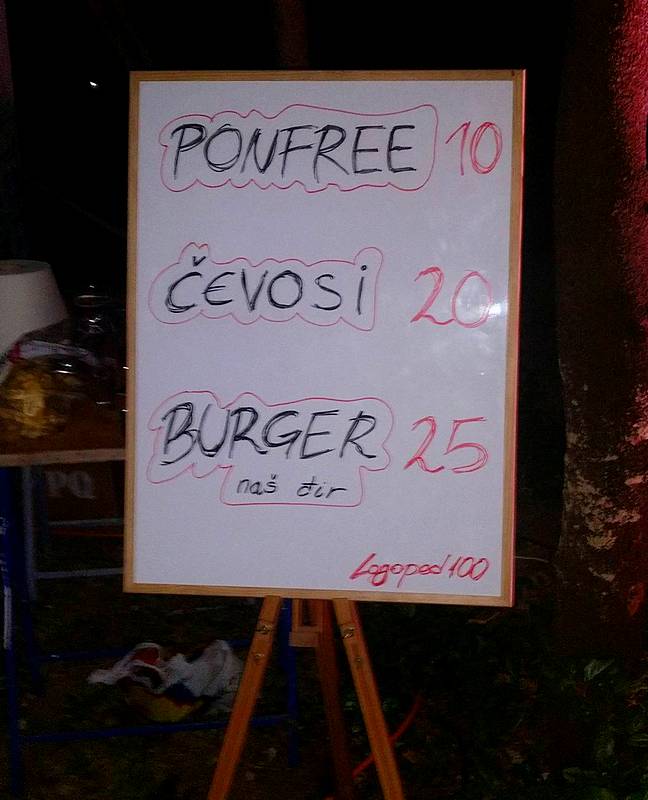
Ponfree. This is another ”rendition” of that irritating word pomfrit. I am known for being utterly useless when it comes to the French language, but all of the variations I’ve come across in various places in Croatia over the years beggar belief. Ponfri. Pomft. Pomfree. Ponfry. Pf. Ponfirt. Pomfirt. Promfit. The list goes on. Just know that your chips, or fries for you Americans, aren’t actually free.
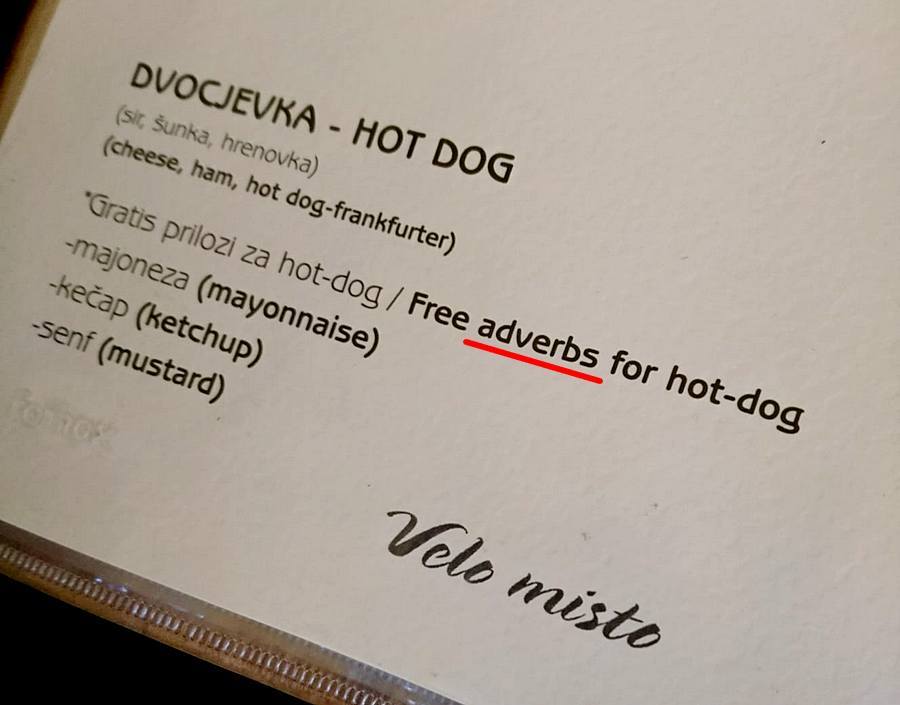
Just like pomfrit, the Croatian word ”prilozi” which roughly translates as extras for your meal, such as, salad, blitva, and… God, even the notorious yet popular ”ponfree” themselves, often gets itself in translation hot water. From additives to adverbs, you’re unlikely to see prilozi translated properly in any menu, just don’t expect a side dish of dictionary with your food, although it’s clearly needed.
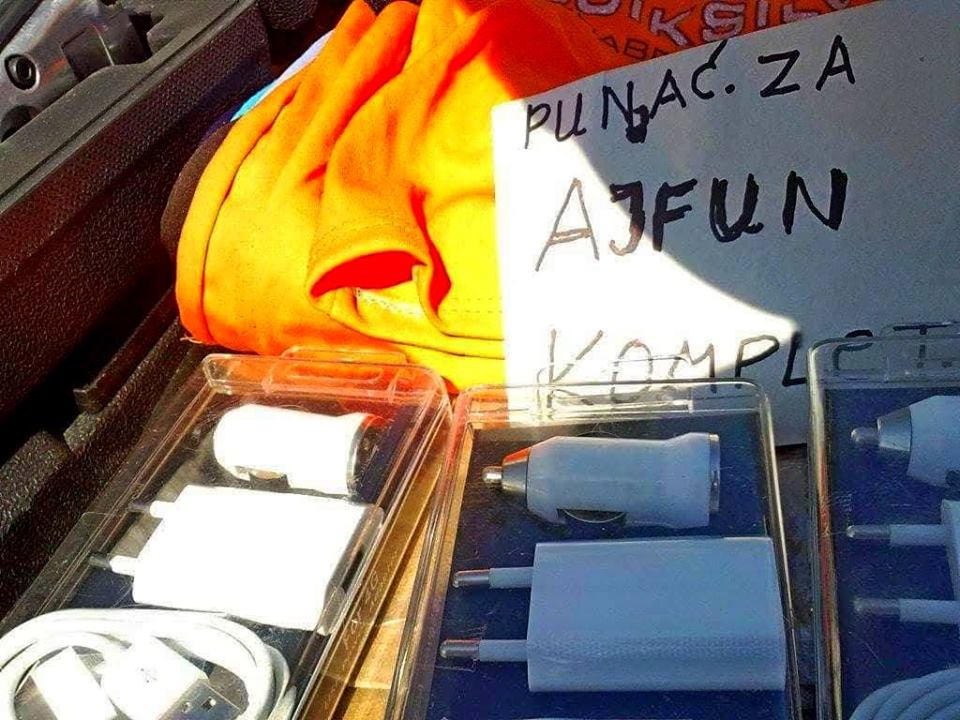
While menus and wine lists are typically the worst offenders in Croatia when it comes to crimes against linguistics, errors aren’t limited to restaurants and cafes. An ajfun is, in case you weren’t sure or hadn’t worked out that these are phone chargers, is an iPhone. Should you buy one? I’d recommend you don’t.
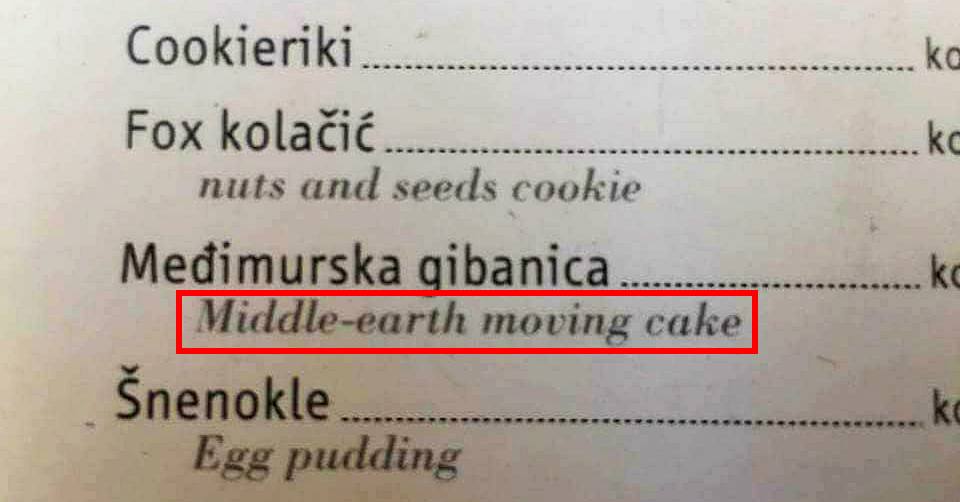
This is one of my favourites of late, it almost beats free handjobs, cheap bitches and infections diseases. Medjimurje is a beautiful, pretty overlooked inland region in continental Croatia. While green, quiet, and totally enchanting, Medjimurje is located far from the sparkling blue Adriatic and the glitz and the glam of yacht-filled Dalmatia, it’s generally off the beaten path for most international tourists with limited time on their hands and the desire for terrible sunbu… sorry, I mean, a tan.
What the region of Medjimurje is known for, however, is culinary delights. One of which is the gibanica, a type of puff pastry layer cake with various ingredients, such as apples, poppy seeds, cheese, nuts, etc. The dish is local to Medjimurje, and popular with many. What it isn’t, is ”Middle-earth moving cake”. Clearly the work of the dreaded Google Translate, this menu is sure to make many a tourist who find themselves in this inland region scratch their heads, unless they’re a Lord of the Rings fan, of course.
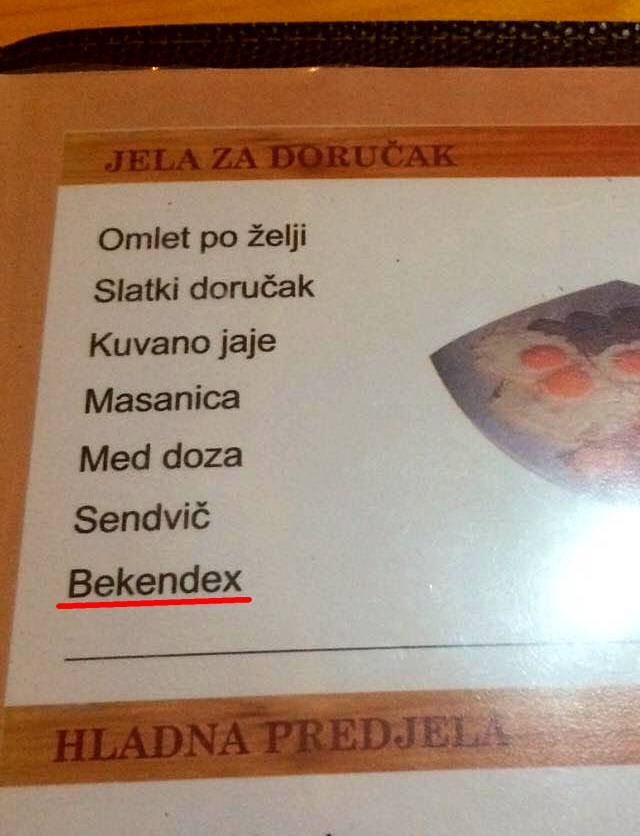
You’ve hopefully tried hemedex by now, so why not heat that ham up and have bekendex? What the aim was, was of course bacon and eggs, so, again, not for vegans.
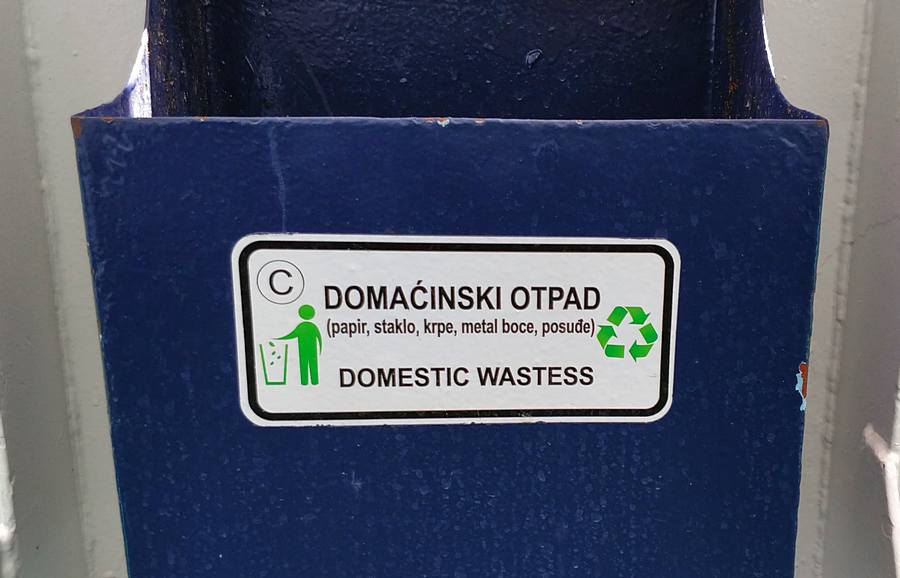
You’ve heard of waitresses, hostesses, stewardesses, but have you heard of a wastess? It’s unlikely, given the delicate times in which we live where it seems the topic of gender is becoming all the more sensitive. This helpful domestic wastess, however, will get rid of paper, glass, and more. One can only wonder how much she’s getting per month, and, is a male one just a waste?
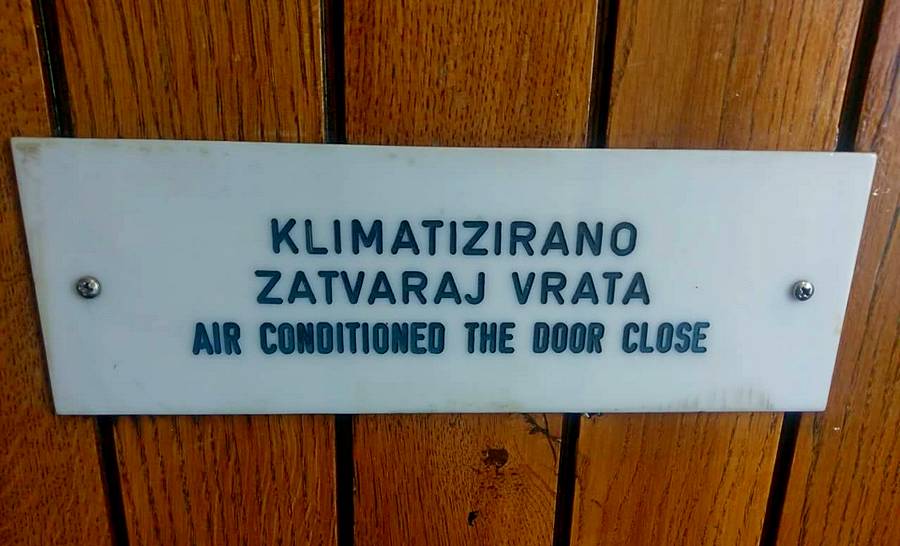
This air conditioner only actually works when you close the door. Or, maybe, it causes the door to close. Either way, English grammar isn’t easy for even the most fluent of speakers, so we’ll let this mild error slip with a smirk.
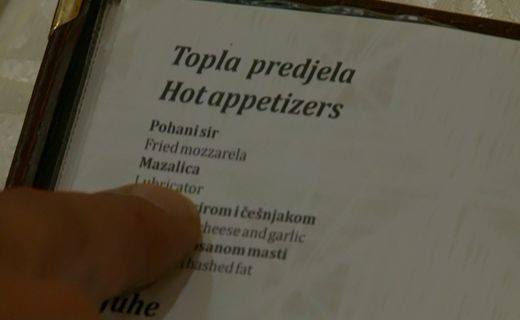
Mazalica, or mazalice is/are wonderful, and if you haven’t tried this dish, you really should. What it isn’t, is a type of lubricant, be it for sexual or mechanical purposes. I decided to Google Translate mazalica myself to see just how this fatal error occurred, and it seems that out of all of the options available according to our dear friend Google, lubricator is actually the best of them all. Other choices are grease box or oil can, neither of which sound particularly appealing on a plate unless you happen to have been manufactured by Mercedes or Vauxhall.

Domaćin, domaćinski, domaći, even Domaćica (yes, the Kraš biscuits, or the housewife), always appear to get lost somewhere when it comes to translation into English. When something is ”domaće” it means it is domestic or home grown. Someone who is a native of somewhere, is often referred to as a ”domaćin” of wherever the place is, and so forth. It all derives from the word ”dom” which is home. You probably get the idea. What we were going for here was obviously domestic waste, as in, general waste you’d find coming from a household. Or, maybe I’m wrong and this beautiful bin is actually solely for the host. Lucky them.
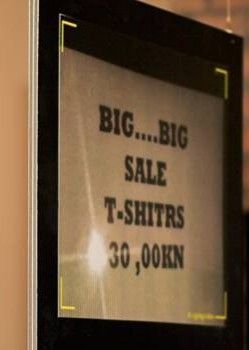
A big……………big sale of sh*t going on here. Don’t miss out. Just imagine how big it really is when you’ve got to take that much of a deep breath between the ”bigs”.
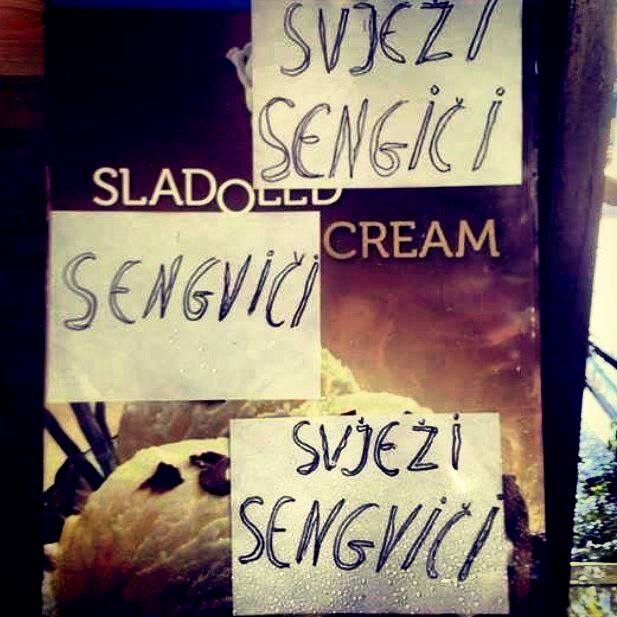
On a sign advertising ice cream, some beautifully written sandwich signs have found their place. Who knew the words ”fresh sandwiches” could take on so many different spellings?
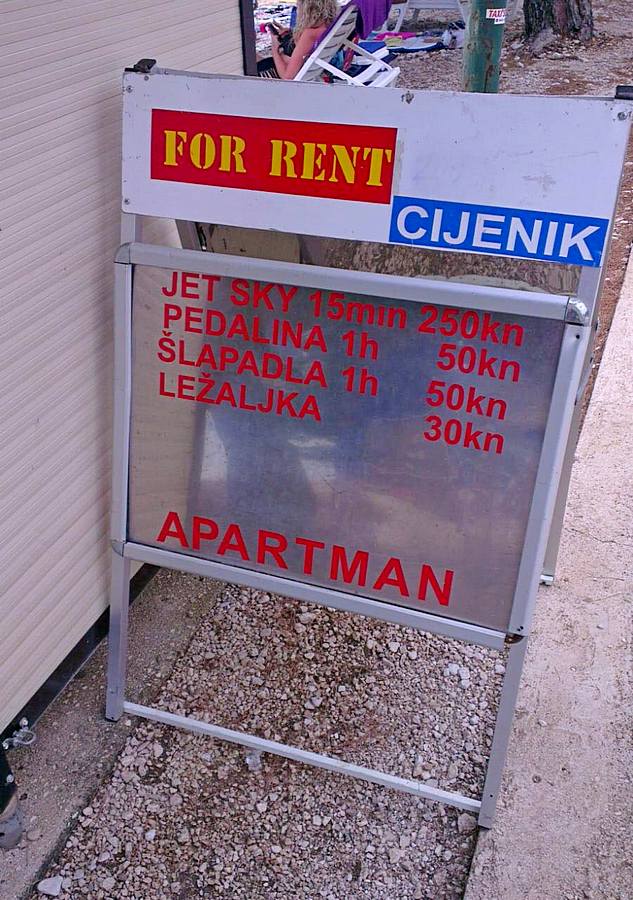
Jet sky. There’s not much else to be said other than it sounds utterly terrifying.
As the tourist season continues for the next couple of months, we’ll aim to bring you more in the Lost in Translation series. Until then, be careful on your rented jet sky, avoid Google Translate like the plague, and why not have a look at some of the mistakes foreigners make when it comes to the Croatian language?




